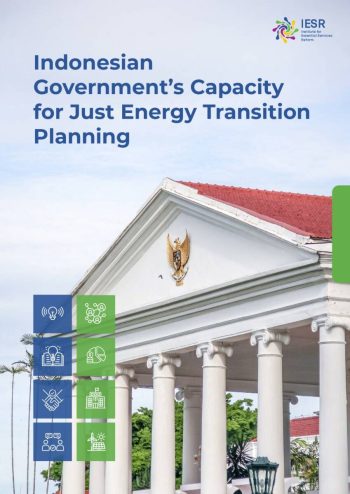The global climate crisis has prompted countries around the world to transition from fossil fuels to clean, renewable energy. Global commitments have begun to put all countries on a path to phase out fossil fuels and achieve net zero emissions (NZE) by 2050, as called for in the Paris Agreement. Achieving NZE will require a collective global effort to reduce greenhouse gas emissions by 45% by 2030. Phasing out and out of fossil fuels has become necessary to mitigate the worsening of global warming.
Indonesia has been heavily dependent on fossil fuels as a source of primary energy and revenues that spur the country’s economy. After oil revenues started to decline in the early 2000s, coal became an important export commodity and a main source of income for some provinces and districts. Coal also generates 65% of national electricity. Coal accounts for about 3.6% of national GDP, 11.4% of total export value, 1.8% of national government revenue and 0.2% of employment in 2022.
This report is supported by the Stockholm Environment Institute / SEI and is included in the Project Just transitions from coal in Colombia, Indonesia and South Africa.
Early Retirement of Power Plants, Net Zero Emissions, Energy Transition, Coal, Indonesia, Funding, Government’s Capacity, Just Energy Transition Planning, Just Energy Transition, Planning

